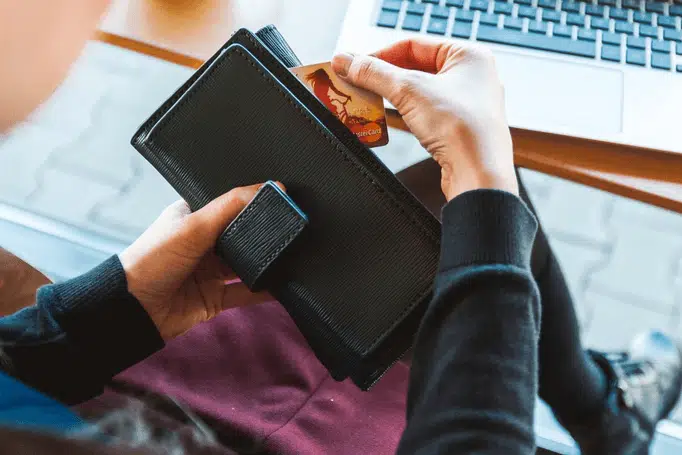There are instances when life gets so stressful, and one way of releasing stress is through splurging on a shopping spree, or by buying things on the internet. It’s not hard to purchase items today. With just a few taps, you can acquire stuff using your credit card.
Aside from the occasional shipping, there are a lot of things that you need to pay for, such as utility bills, plane tickets, appliances, and even services. It helps a lot if you have a card because it’s more comfortable to pay for everything that you need in your house and even in your business if you have one.
However, you might want to go easy when spending money. In the US, the average credit card debt per US resident adult is $4, 192, and $5, 573 for US adults with credit cards. The revolving debt also reached $1.06 trillion, which mainly consists of credit card debts.
How can you save yourself from that kind of debt, especially if you’ve just started working? If you don’t want to keep paying for your credit cards for a long time, read on to know more about helpful information on how you can pay your debt and ramp up with your employment at the same time.
Make a budget
If you didn’t have a budget before, you need to make one now. List your income and your monthly or daily expenses. You can even categorize your payments so you can check which ones are urgent, and which are those that you can pay later.
Keep track of your loans or debts, so you can also see how much you need to pay back to the bank or creditor. A record of your finances can help you balance your money, and you can also make sure that you pay off all of your debts on time.
Spend your bonus wisely
Some companies give a bonus to their employees during special occasions, or maybe you got an incentive at work for a job well done. Instead of spending that money on a trip or buying new clothes, use that money to pay off debts. Make sure to include this money in your budget.
Sell off extra stuff at home
If you don’t have lots of money and your due date is near, you can try going around the house and check if there are things that you can sell online. Maybe you have unused accessories or clothing which you can try selling. You can even hold a garage sale. Make sure to sell your things at a reasonable price. Include your profits in your budget for debt payment.
Prioritize large loans
Check which card has the highest interest rate and start from there. However, don’t neglect the rest of your credit cards. You still have to pay for all your monthly dues. Apply the same to the next highest interest and keep doing it until you manage to eliminate all of your debts.
Spend less
Based on US Debt Statistics, there are a lot of ways to accumulate debt. Understandably, you have a lot of things that you need to buy or pay for, no matter your age. If you’re a student, you need student loans. When you reach adulthood, you have to pay off mortgage or credit card debt.
One effective way to reduce that amount is to manage your money. Check your daily or monthly expenses and see if there are things that you can remove from your budget. Stop buying things that you don’t need so you can get out of debt at a faster rate.
Go higher than the minimum rate
If you have extra cash, pay more than the minimum so you can finish paying off the debt at a faster pace. If you continue paying off only the required balance, your credit card debt might stretch on for months or years, depending on your total balance. If you have the means to make larger payments, do it and rid yourself of your debt.
Keep your goals in sight
Once you set your mind in paying your debts, commit to this goal. Some people forget this once they see their debt going down, particularly if they’ve paid off a significant amount. Don’t get distracted. Keep paying your loans monthly until you don’t have any left. Once done, commit yourself not to acquire a large amount of debt again.
Maintain an emergency fund
If you’re not paying much for credit card debt and you still have cash left, create an emergency fund. It’s a safety net that you can use instead of your credit card. However, remember that you should use this money for emergencies, and not for impulsive shopping.
For you not to overextend yourself financially, balance is the key. Contributing even a small amount to your emergency fund while paying off debts still works. However, don’t force it if you don’t have the means. Pay off your debts first and save later if necessary.
Takeaway
Credit card debts are ordinary, but don’t let yourself get buried in debt. Practice sound financial habits and cut your spending habits to save money. The earlier you can be debt-free, the better for you. Also, you’ll be able to save more while building your career.
Author Bio
Tiffany Wagner is a full-time writer. She writes articles focusing on financial literacy. She also advises young adults in spending money wisely and managing debts. When she’s not writing, Tiffany loves trail hiking with her friends.

